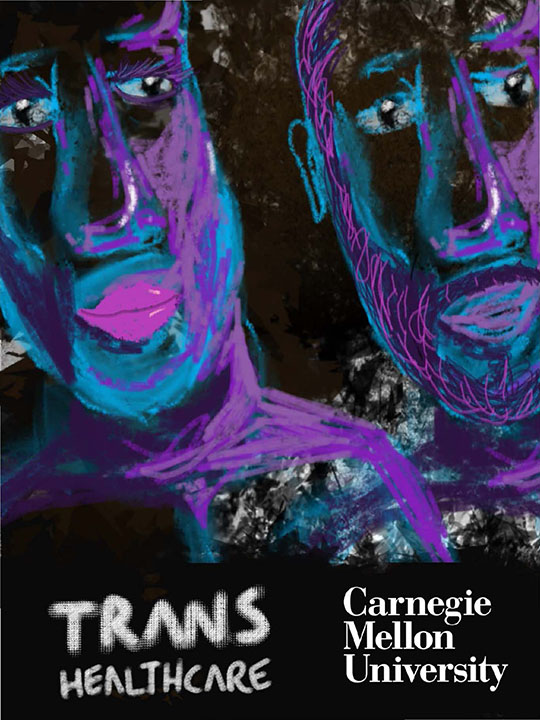Healthcare for LGBTQIA+ Students
LGBTQIA+ students can receive general medical care, as well as specialized care, at University Health Services. This video shares a wealth of information about the ways UHS supports trans students:
General Medical Care
We encourage LGBTQIA+ students to receive routine care. Specifically, UHS recommends that students follow guidelines for routine screening of sex-specific organs, like pap smears/gynecological exams, breast exams, prostate exams, etc. If you are uncomfortable with these types of exams, we are happy to talk with you about how to make them easier.
Specialized Care
Gender Affirming Care Navigation Appointments
UHS now offers Gender Affirming Care Navigation Appointments! Meet with a Health Promotion Specialist to receive gender identity-related support, such as: name change (legal and within CMU), mental health provider referrals, medical provider referrals, sexual health, HRT support, finding surgery providers, obtaining letters for surgeries, basic health insurance info/support, a listening ear, and more. Schedule your appointment through HealthConnect or by calling 412-268-2127 (select option 2).
Pre-Exposure Prophylaxis (PrEP)
Pre-Exposure Prophylaxis is a new HIV prevention treatment. Taking PrEP once daily significantly lowers the risk of HIV transmission. PrEP is covered by the SHIP, CMU's student health insurance plan. Those with outside insurance should check to find out if PrEP is covered and what costs might apply. Additionally, the federal government announced in July of 2021 that almost all health insurers must cover the HIV prevention pill, known as PrEP, or pre-exposure prophylaxis, with no cost sharing — including for the drug itself and, crucially, for clinic visits and lab tests.
Students can make appointments to start or continue PrEP by calling 412-268-2157 (select option 2). Learn more about PrEP.
Hormone Therapy
UHS provides hormone therapy for transgender students using the informed consent model. Hormone therapy is covered by the SHIP, CMU's student health insurance plan. Students can make appointments to start or continue Hormone therapy by calling 412-268-2157 (select option 2).
Informed consent is an evidence-based model of providing care that is used in healthcare agencies serving and run primarily by LGBTQIA+ and trans and gender-nonconforming (TGNC) communities. This means that UHS does not require a student to get a letter from a mental health provider in support of hormones as long as they can provide informed consent for care. A student can provide informed consent if they have correct information about hormone therapy; are able to understand the information about hormone therapy that has been provided, including risks and benefits as well as reversible and irreversible effects; and/or are able to use this information to make a decision.
The informed consent model is consistent with WPATH Standards of Care and reduces barriers to accessing medically necessary treatment. In this model, students are given accurate and comprehensive information about hormone therapy and will be supported in making the decision that is right for them. Please note that providing care in an informed consent model does not mean that hormones are available on demand. If a medical provider determines that a student has a medical or psychological condition that might preclude the initiation of hormones until further evaluation or treatment, the student be will referred to the appropriate medical and/or psychological resources for further evaluation.
Connection to LGBTQIA+ Substance Use Resources
There are many substance use resources in the Pittsburgh community.This Young People and LGBTQIA+ Friendly 12-Step Meetings list includes information about local peer-to-peer meetings and treatment centers that center LGBTQIA+ folks. For more information about recovery and harm reduction at CMU, please visit the CMU Collegiate Recovery & Harm Reduction webpage.
Your Privacy
Information about your gender identity, gender expression and sexual orientation shared during visits is treated like any other sensitive medical information. We are not permitted to disclose any medical information to anyone, including a parent or guardian, without the consent of the student. Learn more about our privacy practices.

